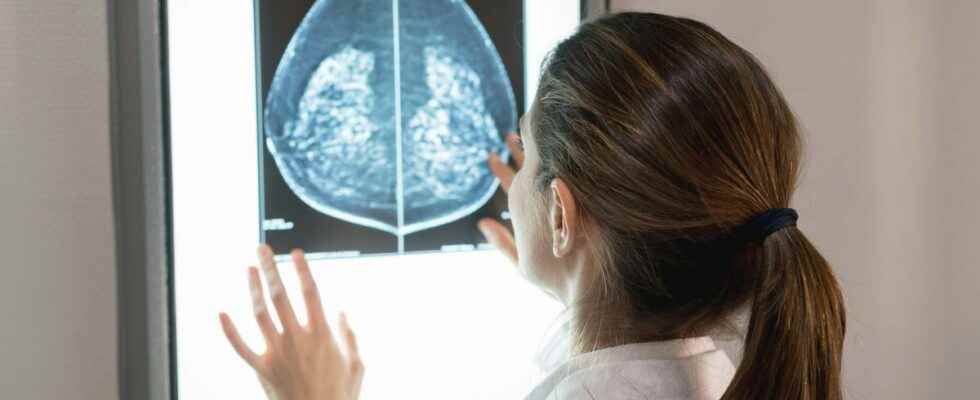Published on
Updated
Reading 2 mins.
A recent American study points out that breast density is a largely underestimated risk factor in breast cancer. However, it is more involved than the hereditary factor, for example, in the onset of the disease.
A close relative affected by the disease, an unhealthy lifestyle, the fact of never having had a child or a previous cancer… These are known risk factors when it comes to breast cancer. But according to a new American study published in JAMA Network Open on January 23, an important risk factor is relatively little recognized by women of age to be screened: the density of breast tissue. Yet, according to science, dense breast tissue (i.e. more glandular and fibrous than fat) is associated with a 1.2 to four times higher risk of breast cancer than having a first-degree relative with the condition. of breast cancer. However, the information is not shared enough.
More than 9 out of 10 women screened do not know this risk factor
The team of scientists from the Dartmouth Institute for Health Policy in the United States thus questioned 1,858 women aged 40 to 76 in 2019 and 2020 who had undergone a mammogram, and without any history of breast cancer, on their knowledge of the breast density. She specifically asked them to compare 6 risk factors for breast cancer, namely:
- Breast tissue density;
- Having a first-degree relative with breast cancer;
- Being overweight or obese;
- Drink more than one alcoholic drink per day;
- Never having had children;
- Have ever had breast cancer.
“Compared to other known and perhaps more well-known breast cancer risks, women did not perceive breast density as a significant risk.“, said Laura Beidler, author of the study. In fact, they were even 93% to declare that breast density constitutes only a lower risk.
Better inform about breast density for better prevention
Dense breast tissue, however, is nothing abnormal. It refers to breasts that are made up of more glandular and fibrous tissue than fatty tissue and is seen in about half of women having a mammogram. The density changes during a woman’s life: it is notably a little higher in young women, pregnant women, those who are breastfeeding or taking hormonal treatment.
However, one may wonder why the risk of developing breast cancer increases with the density of breast tissue. On CNN a breast oncologist suggested: “One hypothesis is that women who have denser breast tissue have higher levels of estrogen, which contributes to both breast density and the risk of developing breast cancer.”.
But if the mechanism is not yet well known, knowing that density is also a risk factor could help detect cancers earlier. The study authors suggest: Since women with dense breast tissue are considered to have higher than average cancer risks, they may benefit from additional screening such as breast MRI or ultrasound. breast cancer, which can detect cancers missed during mammograms.
